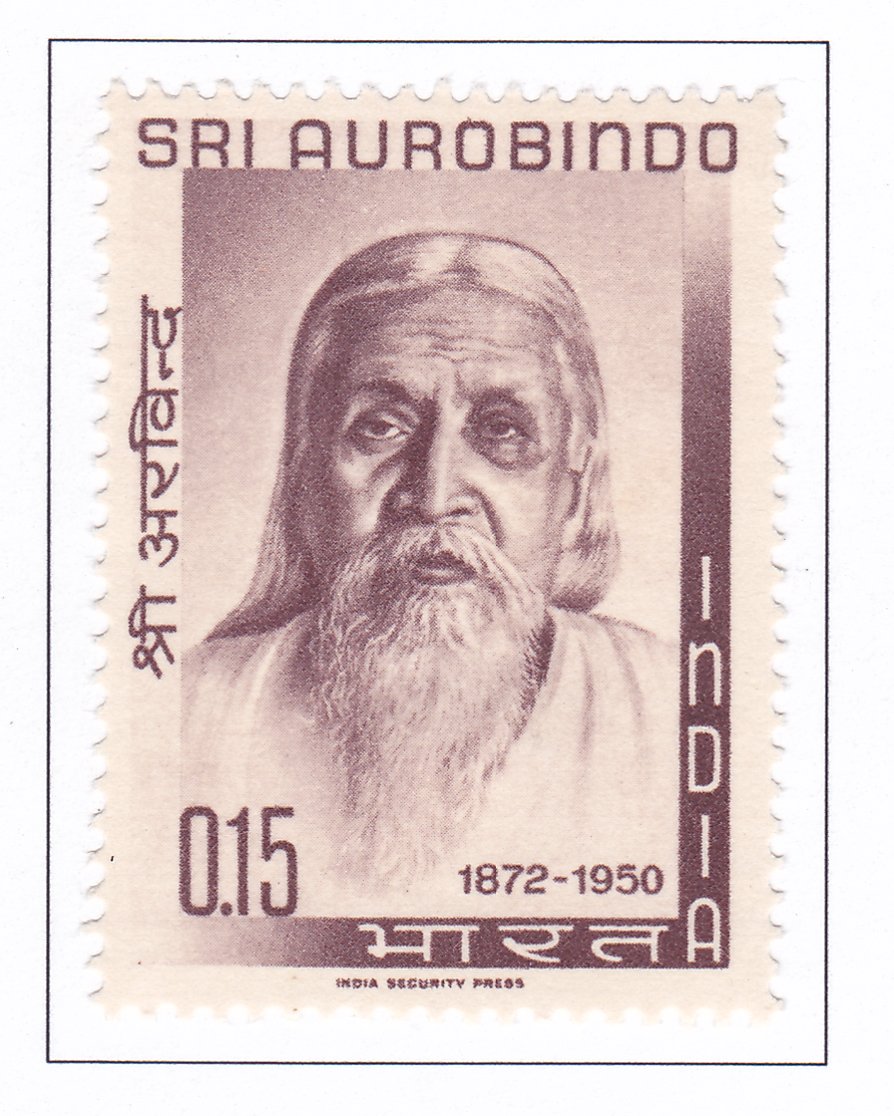Sri Aurobindo Ghose

Technical Data
| Date of Issue | August 15, 1964 |
|---|---|
| Denomination | INR 0.15 |
| Quantity | 2,500,000 |
| Perforation | comb 13 x 13½ |
| Printer | Security Printing Press, Nashik |
| Watermark | Asokan Capital Multiple [Up] |
| Colors | Dull purple |
| Catalog Codes |
Michel IN 375 Stamp Number IN 390 Yvert et Tellier IN 176 Stanley Gibbons IN 489 |
| Themes | Anniversaries and Jubilees | Famous people | Literary People (Poets and Writers) | Men | Philosophers | Religion |
Sri Aurobindo Ghose, one of the eminent personalities born in India in the latter half of the nineteenth century, is recognized as a leading figure in various fields. Born on August 15, 1872, in Calcutta, he received his early education in India before studying in England for fourteen years. He excelled academically, mastering several European languages and achieving top honors at the University of Cambridge.
Despite his success, Sri Aurobindo chose not to pursue a career in the Indian Civil Services. Instead, he dedicated himself to the cause of India’s independence from foreign rule. As a student at Cambridge, he actively participated in debates at the Indian Majlis, advocating for India’s freedom and hinting at the possibility of armed rebellion.
Upon returning to India, Sri Aurobindo served for thirteen years under the Maharaja of Baroda, initially as an administrator and later as a teacher and principal. During this time, he immersed himself in Indian languages, literature, scriptures, and cultural heritage. He also expressed his political views through articles in the Indu Prakash of Bombay, criticizing the aims of contemporary nationalist leaders and proposing his own radical ideas.
Sri Aurobindo’s involvement in revolutionary activities intensified following the partition of Bengal in 1905. He played a key role in organizing revolutionary work in Bombay Presidency and Bengal, advocating for Swadeshi and boycott movements. At the Indian National Congress session in Calcutta in 1906, he openly declared the aim of complete autonomy free from British control.
In May 1908, Sri Aurobindo was arrested along with thirty-eight other revolutionaries and spent a year in jail as an undertrial prisoner. It was during this period that he underwent a profound spiritual transformation, experiencing cosmic consciousness and the vision of Shri Krishna. Subsequently, he devoted himself entirely to the pursuit of spirituality.
In 1910, Sri Aurobindo left British India and settled in Pondicherry, then a French possession, where he established his ashram. Over time, disciples from around the world gathered at the ashram to learn his yoga and participate in his spiritual teachings. Sri Aurobindo’s profound insights into spirituality were disseminated through various publications, including books, essays, and poems.
His notable works include “The Life Divine,” “The Synthesis of Yoga,” “Essays on the Gita,” “The Human Cycle,” and “Savitri,” an epic poem with over 23,000 lines of verse. The Sri Aurobindo Ashram in Pondicherry, along with affiliated institutions such as the Sri Aurobindo Society and Sri Aurobindo International Centre of Education, continue to propagate his teachings.
Sri Aurobindo passed away on December 5, 1950, but his legacy endures, guided by “The Mother,” who joined him in his spiritual work. In honor of his 92nd birth anniversary on August 15, 1964, the Posts and Telegraphs Department issued a commemorative stamp, recognizing Sri Aurobindo as a great sage and seer whose teachings continue to inspire generations.
